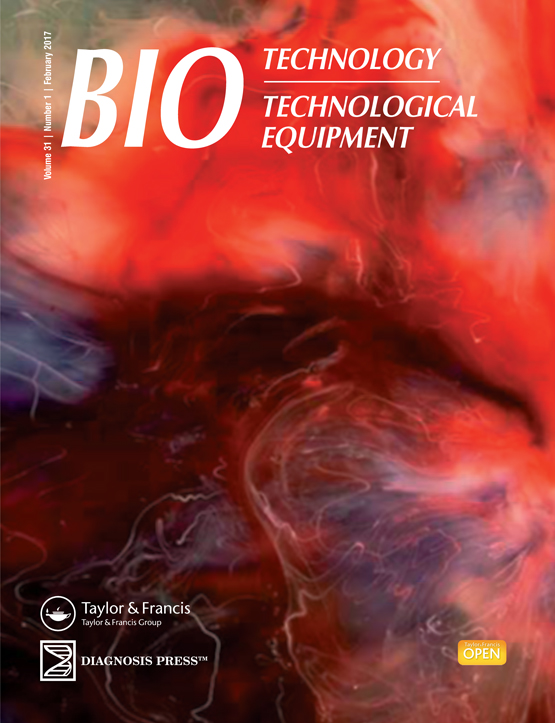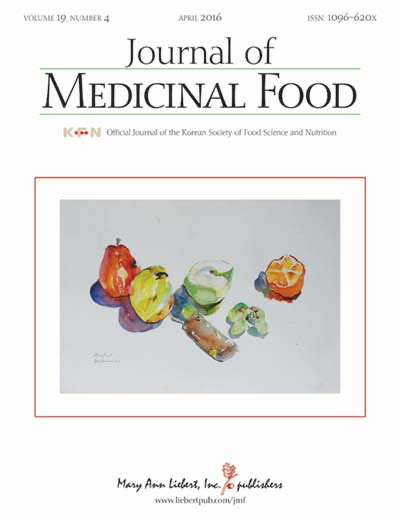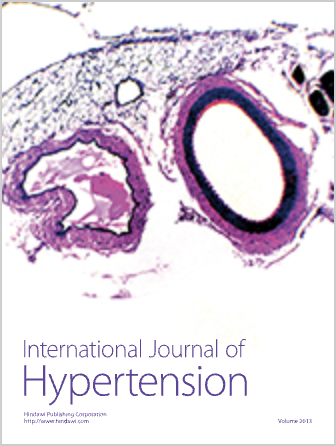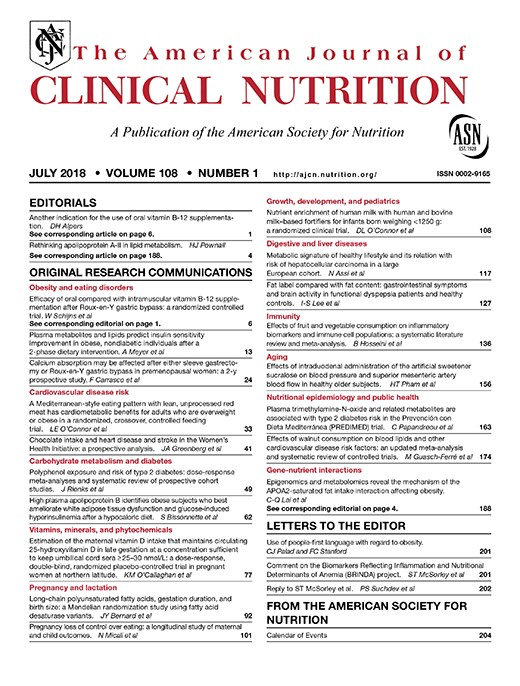Cardioprotective Effects
How to submit an article:
- Registered users can submit any published journal article that has a unique DOI (Digital Object Identifier) name or link to Research Hub.
- For example, you can paste the full DOI link:
https://doi.org/10.1109/5.771073or just the DOI name:10.1109/5.771073into the field above and click submit. - The person who is first to submit a valid article to Research Hub will forever be credited for it, and every article submission earns you +6 Research Points.
Published research studies are articles that present the findings of original research that has undergone a peer-review process and has been made publicly available in scholarly journals, books or other media.

Cardio- and nephroprotective effects of fractions isolated from Lycium barbarum (goji berry) in models of cardio- and nephrotoxicity in rats
2023 Jan 09 Biotechnology & Biotechnological Equipment Hvarchanova N, Stoeva S, Radeva-Ilieva M, Zhelev I, Georgieva M, Dzhenkov D, et al.
Animal Study Nephroprotective Effects Goji Berry Cardioprotective Effects CardioprotectiveSpecific fractions of Lycium barbarum, commonly known as Goji berry, reduce heart and kidney damage caused by anthracyclines while possibly enhancing their therapeutic effects.

Effects of Montmorency Tart Cherry Juice Consumption on Cardiometabolic Biomarkers in Adults with Metabolic Syndrome: A Randomized Controlled Pilot Trial
2020 Dec 01 Journal of Medicinal Food Johnson SA, Navaei N, Pourafshar S, Jaime SJ, Akhavan NS, Alvarez-Alvarado S, et al.
Randomised Controlled Trial LDL Cardioprotective Effects Atherogenesis Cherry Cardiovascular Disease Metabolic SyndromeDaily consumption of tart cherry juice may reduce processes involved in accelerated atherogenesis, potentially decreasing the risk of cardiovascular diseases.

A review of chrysanthemum, the eastern queen in traditional Chinese medicine with healing power in modern pharmaceutical sciences
2019 Aug Applied Ecology and Environmental Research SHAHRAJABIAN, M. H., SUN, W., ZANDI, P., et al.
Review Article Antioxidant Anti-Inflammatory Chrysanthemum Cardioprotective EffectsChrysanthemum, rich in unique chemical compounds, offers significant health benefits such as stress relief, cardio protection, immunity boost, improved eye health, and osteoporosis risk reduction.

The Mechanism of Acupuncture in Treating Essential Hypertension: A Narrative Review
2019 Mar 7 International Journal of Hypertension Juan Li , 1 Mingsheng Sun , 2 Jing Ye, 2 Yuxi Li , 2 Rongjiang Jin , 1 Hui Zheng , et al.
Systematic Review Randomised Controlled Trial High Blood PressureAcupuncture as an adjunctive therapy has antihypertensive effect.

Effects of Avocado (Persea americana)on Metabolic Syndrome: A Comprehensive Systematic Review
2017 Apr 10 Phytotherapy Research Tabeshpour J, Razavi BM, Hosseinzadeh H
Systematic Review Type 2 Diabetes High Blood Pressure Metabolic Syndrome Cardiovascular Disease Avocado ObesityAvocado, with its lipid-lowering, antihypertensive, antidiabetic, anti-obesity, and cardioprotective effects, can potentially manage metabolic syndrome more efficaciously than synthetic treatment options.
Research insights are moderated by the Research Hub team and offer an at-a-glance overview of interesting research findings.

2023 Biotechnology & Biotechnological Equipment
Specific fractions of Lycium barbarum, commonly known as Goji berry, reduce heart and kidney damage caused by anthracyclines while possibly enhancing their therapeutic effects.
Animal Study Cardioprotective Goji Berry Nephroprotective Effects
Cardio- and nephroprotective effects of fractions isolated from Lycium barbarum (goji berry) in models of cardio- and nephrotoxicity in rats
Hvarchanova N, Stoeva S, Radeva-Ilieva M, Zhelev I, Georgieva M, Dzhenkov D, et al.

2020 Journal of Medicinal Food
Daily consumption of tart cherry juice may reduce processes involved in accelerated atherogenesis, potentially decreasing the risk of cardiovascular diseases.
Randomised Controlled Trial Atherogenesis Cardiovascular Disease Cherry LDL Metabolic Syndrome
Effects of Montmorency Tart Cherry Juice Consumption on Cardiometabolic Biomarkers in Adults with Metabolic Syndrome: A Randomized Controlled Pilot Trial
Johnson SA, Navaei N, Pourafshar S, Jaime SJ, Akhavan NS, Alvarez-Alvarado S, et al.

2019 Applied Ecology and Environmental Research
Chrysanthemum, rich in unique chemical compounds, offers significant health benefits such as stress relief, cardio protection, immunity boost, improved eye health, and osteoporosis risk reduction.
Review Article Anti-Inflammatory Antioxidant Chrysanthemum
A review of chrysanthemum, the eastern queen in traditional Chinese medicine with healing power in modern pharmaceutical sciences
SHAHRAJABIAN, M. H., SUN, W., ZANDI, P., et al.

2019 International Journal of Hypertension
Acupuncture as an adjunctive therapy has antihypertensive effect.
Systematic Review High Blood Pressure
The Mechanism of Acupuncture in Treating Essential Hypertension: A Narrative Review
Juan Li , 1 Mingsheng Sun , 2 Jing Ye, 2 Yuxi Li , 2 Rongjiang Jin , 1 Hui Zheng , et al.

2017 Phytotherapy Research
Avocado, with its lipid-lowering, antihypertensive, antidiabetic, anti-obesity, and cardioprotective effects, can potentially manage metabolic syndrome more efficaciously than synthetic treatment options.
Systematic Review Avocado Cardiovascular Disease High Blood Pressure Metabolic Syndrome Obesity
Effects of Avocado (Persea americana)on Metabolic Syndrome: A Comprehensive Systematic Review
Tabeshpour J, Razavi BM, Hosseinzadeh H
Review Articles
Review articles summarise and critically evaluate the current state of research on a specific topic or field by synthesising multiple primary research studies.

A review of chrysanthemum, the eastern queen in traditional Chinese medicine with healing power in modern pharmaceutical sciences
2019 Aug Applied Ecology and Environmental Research SHAHRAJABIAN, M. H., SUN, W., ZANDI, P., et al.
Review Article Antioxidant Anti-Inflammatory Chrysanthemum Cardioprotective EffectsChrysanthemum, rich in unique chemical compounds, offers significant health benefits such as stress relief, cardio protection, immunity boost, improved eye health, and osteoporosis risk reduction.

The Mechanism of Acupuncture in Treating Essential Hypertension: A Narrative Review
2019 Mar 7 International Journal of Hypertension Juan Li , 1 Mingsheng Sun , 2 Jing Ye, 2 Yuxi Li , 2 Rongjiang Jin , 1 Hui Zheng , et al.
Systematic Review Randomised Controlled Trial High Blood PressureAcupuncture as an adjunctive therapy has antihypertensive effect.

Effects of Avocado (Persea americana)on Metabolic Syndrome: A Comprehensive Systematic Review
2017 Apr 10 Phytotherapy Research Tabeshpour J, Razavi BM, Hosseinzadeh H
Systematic Review Type 2 Diabetes High Blood Pressure Metabolic Syndrome Cardiovascular Disease Avocado ObesityAvocado, with its lipid-lowering, antihypertensive, antidiabetic, anti-obesity, and cardioprotective effects, can potentially manage metabolic syndrome more efficaciously than synthetic treatment options.
Clinical Trials
Clinical trials are research studies that involve people and are conducted to evaluate the safety and efficacy of new treatments or interventions, such as drugs, medical devices, or behavioural therapies.

Effects of Montmorency Tart Cherry Juice Consumption on Cardiometabolic Biomarkers in Adults with Metabolic Syndrome: A Randomized Controlled Pilot Trial
2020 Dec 01 Journal of Medicinal Food Johnson SA, Navaei N, Pourafshar S, Jaime SJ, Akhavan NS, Alvarez-Alvarado S, et al.
Randomised Controlled Trial LDL Cardioprotective Effects Atherogenesis Cherry Cardiovascular Disease Metabolic SyndromeDaily consumption of tart cherry juice may reduce processes involved in accelerated atherogenesis, potentially decreasing the risk of cardiovascular diseases.

The Mechanism of Acupuncture in Treating Essential Hypertension: A Narrative Review
2019 Mar 7 International Journal of Hypertension Juan Li , 1 Mingsheng Sun , 2 Jing Ye, 2 Yuxi Li , 2 Rongjiang Jin , 1 Hui Zheng , et al.
Systematic Review Randomised Controlled Trial High Blood PressureAcupuncture as an adjunctive therapy has antihypertensive effect.

Effects of Montmorency tart cherry (Prunus Cerasus L.) consumption on vascular function in men with early hypertension
2016 Jun The American Journal of Clinical Nutrition Keane KM, George TW, Constantinou CL, Brown MA, Clifford T, Howatson G
Randomised Controlled Trial High Blood Pressure Cherry Systolic Blood Pressure Cardioprotective EffectsMontmorency tart cherry juice intake can significantly lower systolic blood pressure in men with early hypertension, with improvements linked to phenolic acids.
Study Protocols
Published study protocols are detailed plans that outline the objectives, methodology, statistical analyses, and organisation of a research study that have been made publicly available for others to review and use as a reference.
Presentation Slides

Animal Study
Specific fractions of Lycium barbarum, commonly known as Goji berry, reduce heart and kidney damage caused by anthracyclines while possibly enhancing their therapeutic effects.
Hvarchanova N, Stoeva S, Radeva-Ilieva M, Zhelev I, Georgieva M, Dzhenkov D, Georgiev KD

Randomised Controlled Trial
Daily consumption of tart cherry juice may reduce processes involved in accelerated atherogenesis, potentially decreasing the risk of cardiovascular diseases.
Johnson SA, Navaei N, Pourafshar S, Jaime SJ, Akhavan NS, Alvarez-Alvarado S, Proaño GV, Litwin NS, Clark EA, Foley EM, George KS, Elam ML, Payton ME, Arjmandi BH, Figueroa A

Review Article
Chrysanthemum, rich in unique chemical compounds, offers significant health benefits such as stress relief, cardio protection, immunity boost, improved eye health, and osteoporosis risk reduction.
SHAHRAJABIAN, M. H., SUN, W., ZANDI, P., CHENG, Q.

Systematic Review
Acupuncture as an adjunctive therapy has antihypertensive effect.
Juan Li ,1 Mingsheng Sun ,2 Jing Ye,2 Yuxi Li ,2 Rongjiang Jin ,1 Hui Zheng ,2 and Fanrong Liang 2

Systematic Review
Avocado, with its lipid-lowering, antihypertensive, antidiabetic, anti-obesity, and cardioprotective effects, can potentially manage metabolic syndrome more efficaciously than synthetic treatment options.
Tabeshpour J, Razavi BM, Hosseinzadeh H

Randomised Controlled Trial
Montmorency tart cherry juice intake can significantly lower systolic blood pressure in men with early hypertension, with improvements linked to phenolic acids.
Keane KM, George TW, Constantinou CL, Brown MA, Clifford T, Howatson G
Executive Summary
Write an executive summary in the form of a blog article on the topic of "Research into Chinese medicine treatment for Cardioprotective Effects" summarising the research below and using language that can be easily understood by patients and avoiding medical jargon using a professional and caring tone of voice.
Write an executive summary in the form of a blog article on the topic of "Researched Chinese medicine treatments for Cardioprotective Effects" summarising the research below in an objective and easy to understand way, and using language that can be easily understood by patients. Group the article into Chinese medicine treatments first, followed by nutrition and other treatments. Avoid using medical jargon and use a professional and caring tone of voice.
Write me a concise but easy to understand executive summary on the topic of "Chinese medicine treatments for Cardioprotective Effects" based on the following research that I will give you. Your summary should be 2 paragraphs long in Australian English spelling and include references to the studies.
A Animal Study published in 2023 in the journal Biotechnology & Biotechnological Equipment found that Specific fractions of Lycium barbarum, commonly known as Goji berry, reduce heart and kidney damage caused by anthracyclines while possibly enhancing their therapeutic effects. The study investigated the effects of three different fractions of Goji berries (pectin-free, polysaccharides, and a mix of the two) on rat models suffering from doxorubicin-induced damage to the heart and kidneys. The fractions were orally administered at a dose of 2mg/kg while doxorubicin was applied at a total dose of 20mg/kg. Several biomarkers were used to assess heart damage (such as creatine kinase, aspartate aminotransferase, lactate dehydrogenase) and kidney damage (creatinine, blood urea nitrogen, uric acid), along with potassium serum levels. Additionally, a histological analysis of the hearts and kidneys was conducted. In terms of results, rats treated solely with doxorubicin exhibited a significant increase in all toxicity biomarkers. However, in all groups that also received any of the plant fractions, there was substantial reduction in markers indicating heart and kidney tissue damage. Notably, the pectin-free and combined fractions presented the most substantial decreases in toxicity indicators. These findings were further corroborated by the histological analysis.
A Randomised Controlled Trial published in 2020 in the journal Journal of Medicinal Food found that Daily consumption of tart cherry juice may reduce processes involved in accelerated atherogenesis, potentially decreasing the risk of cardiovascular diseases. In this randomized, single-blind, placebo-controlled, parallel-arm pilot clinical trial, 19 men and women aged between 20 to 60 years who have metabolic syndrome participated. They were assigned to consume either 240ml of tart cherry juice or an isocaloric placebo-control drink twice daily for a period of 12 weeks. Initial evaluations on arterial stiffness (determined through pulse wave velocity), brachial and aortic blood pressures, wave reflection or augmentation index, and blood markers for cardiovascular and metabolic health were established as their baseline values. Despite observing no significant alterations in hemodynamics, arterial stiffness, or other assessed blood biomarkers, there was a noted decrease in oxidized low-density lipoprotein and soluble vascular cell adhesion molecule-1 levels in the tart cherry juice group compared to the control group at the end of 12 weeks. In addition, there was a trending lower total cholesterol level in the tart cherry group versus the control at the end of the trial. These results suggest that daily tart cherry juice consumption may help decrease processes involved in the rapid progression of atherogenesis.
A Review Article published in 2019 in the journal Applied Ecology and Environmental Research found that Chrysanthemum, rich in unique chemical compounds, offers significant health benefits such as stress relief, cardio protection, immunity boost, improved eye health, and osteoporosis risk reduction. The study primarily focuses on evaluating the most important chemical extracts of chrysanthemum. These include flavonoids, betaine, choline, and vitamin B1. Further, the researchers identified thirteen compounds unique to chrysanthemum flowers. These were extracted and analyzed to unveil their potential health benefits. In the discussion of results, the authors highlight chrysanthemum's impressive range of health benefits stemming from its chemical composition. It is revealed that chrysanthemum can potentially alleviate stress and anxiety while improving cardiovascular health. It also has properties to guard against oxidative damage and inflammation, support a healthy immune function, enhance eye health, and lessen the risk of osteoporosis. Interestingly, the herb's beneficial traits align with its traditional use in Chinese medicine, underscoring chrysanthemum's potential in promoting holistic, organic health.
A Systematic Review published in 2019 in the journal International Journal of Hypertension found that Acupuncture as an adjunctive therapy has antihypertensive effect. The mechanism of acupuncture for hypertension is related to RAAS, vascular endothelium, oxidative stress, the neuroendocrine system, and other factors; also, there is cross-talk between multiple systems and multiple targets. In addition, the functional images, genes, metabolism, etc. change with antihypertensive effect. Acupuncture can protect target organs in addition to reducing BP. Overall, based on the mechanism research acupuncture may be an effective intervention for management of hypertension.
A Systematic Review published in 2017 in the journal Phytotherapy Research found that Avocado, with its lipid-lowering, antihypertensive, antidiabetic, anti-obesity, and cardioprotective effects, can potentially manage metabolic syndrome more efficaciously than synthetic treatment options. The methodology used in this research involved a systematic review of several studies investigating the pharmacological effects of avocado on different components of metabolic syndrome. This included studies on the lipid-lowering, antihypertensive, antidiabetic, anti-obesity, antithrombotic, antiatherosclerotic, and cardioprotective effects of avocado. Further, the review also encompassed researches based on the effects of avocado's various parts like the flesh, seed, peel, and leaves in metabolic syndrome. Upon evaluation of collected studies, the researchers found that the avocado, a rich source of carotenoids, minerals, phenolics, vitamins, and fatty acids, demonstrates strong potential in managing metabolic syndrome. Its antidiabetic, antihypertensive, anti-obesity, lipid-lowering, and cardioprotective properties specifically align with the key risk factors of metabolic disease, including high blood sugar, dyslipidemia, hypertension, and obesity. These qualities suggest that avocado might present a more efficient and less adverse alternative to synthetic treatments.
A Randomised Controlled Trial published in 2016 in the journal The American Journal of Clinical Nutrition found that Montmorency tart cherry juice intake can significantly lower systolic blood pressure in men with early hypertension, with improvements linked to phenolic acids. In a carefully controlled, blinded, crossover study employing a randomized Latin square design, fifteen male participants showing early signs of hypertension were given either a 60-mL dose of Montmorency tart cherry (MC) concentrate or a placebo. A recovery period of at least 14 days was allowed between tests to eliminate lingering effects from the previous test. Observations centred on microvascular reactivity, arterial stiffness, blood pressure, and phenolic acid absorption, and these were collected at designated intervals before and up to eight hours after consuming the MC concentrate or placebo. The analysis of the data revealed that consumption of the MC concentrate resulted in a significant reduction in systolic blood pressure in comparison to the placebo, reaching maximum impact two hours after intake. Crucially, this positive effect was found to coincide with an increase in circulating protocatechuic and vanillic acid 1-2 hours post consumption. Thus, it is suggested that the benefits of MC for cardiovascular health, particularly for blood pressure control, can be directly attributed to the influence of these circulating phenolic acids.
Moderation Tools
Topic
Sign In
Users not signed in are limited to viewing the 5 most recent items of content.